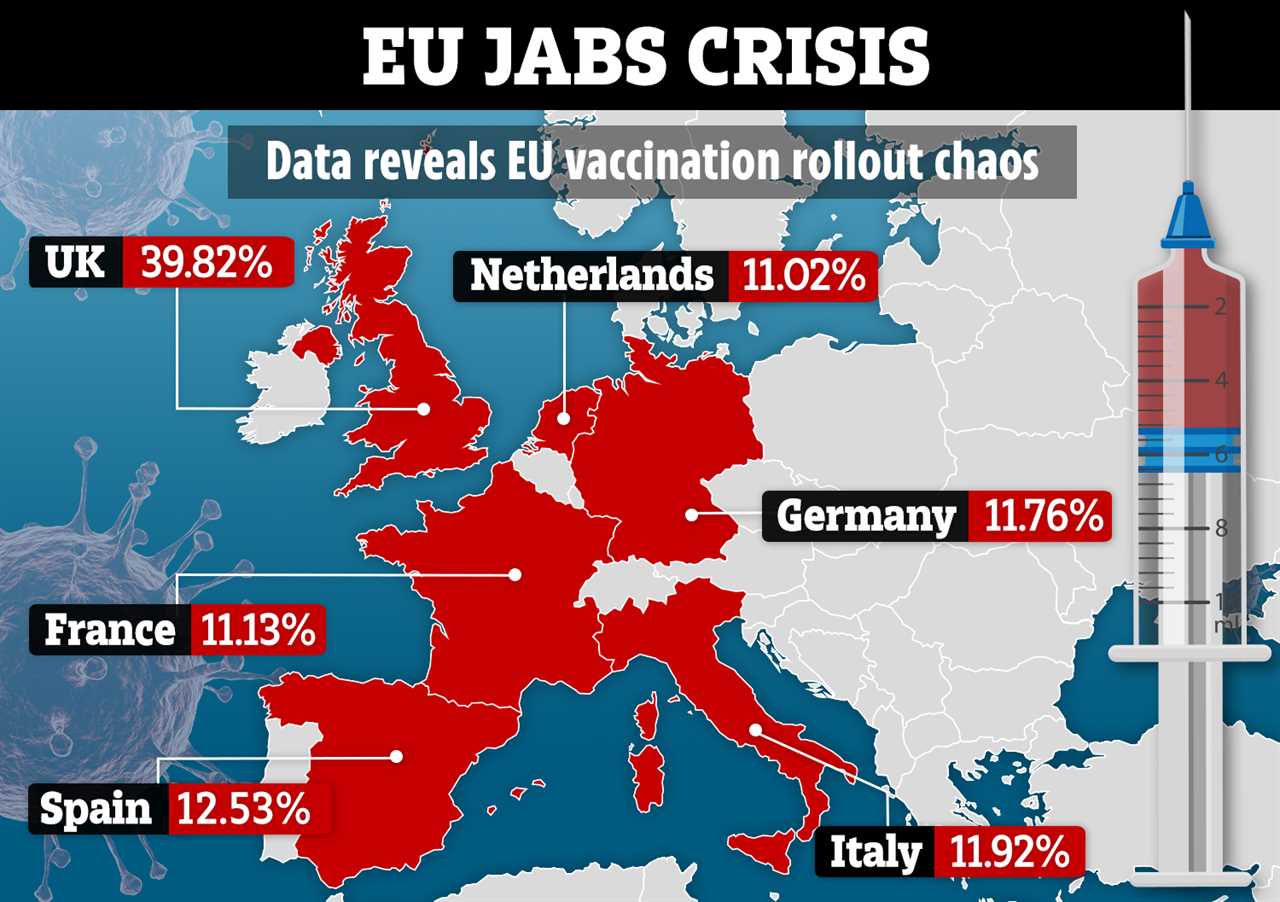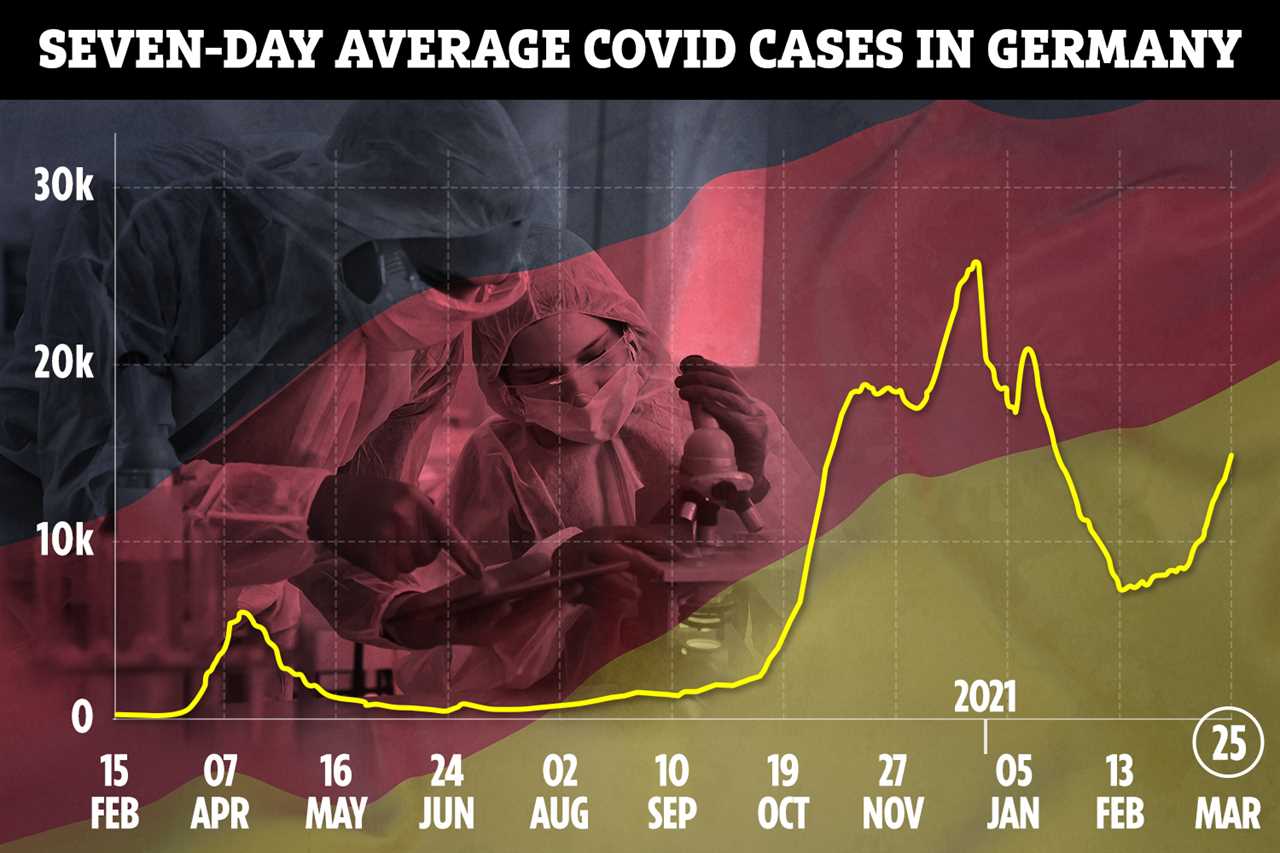GERMANY is to stop giving AstraZeneca Covid jabs to the under-60s over blood clot fears – despite regulators saying it’s completely safe.
The suspension comes despite Germany’s and other European countries’ chaotic vaccine programmes and a dramatic rise in coronavirus cases.

Read our coronavirus live blog for the latest news & updates…


The shock decision comes days after France, Italy and Germany resumed their rollout out of the AstraZeneca vaccine after the EU finally declared it safe.
The trio’s humiliating U-turn had come after all three countries led the way in suspending use of the jab amid an unfounded safety scare about the link with blood-clots.
But tonight, in another about-face, German health officials agreed to restrict the use of AstraZeneca doses in people under 60.
This is due to fresh concern over unusual blood clots reported in a tiny number of those who received the shots.
Health Minister Jens Spahn and state officials agreed unanimously to only give the vaccine to people aged 60 or older.
That’s unless they belong to a high-risk category for serious illness from Covid and have agreed with their doctor to take the vaccine despite the small risk of a serious side-effect.
The move follows the recommendations of Germany’s independent vaccine expert panel.
The country’s medical regulator released new data showing a rise in reported cases of an unusual form of blood clot in the head known as sinus vein thrombosis in recent recipients of the AstraZeneca vaccine.

But in a statement ahead of Germany’s announcement, AstraZeneca said tens of millions of people worldwide have received its vaccines.
It noted that the EU regulator and the World Health Organisation concluded that the benefits of the shot outweigh any risks.
The company also said it would continue to work with German authorities to address any questions they might have.
AstraZenaca is also analysing its own records to understand whether “the rare blood clots reported occur more commonly than would be expected naturally in a population of millions of people.”
Millions of people across the world have had the AstraZeneca vaccine – developed by Oxford University – without any complications.
Regulators have stressed that the benefits of the jab, to prevent Covid deaths, far outweigh any potential risks.
European regulators say there is no overall increased risk of blood clots in people who get the shot, or that from Pfizer.
But it is unclear whether a very small number of brain blood clots – including five in the UK, one of whom died – were the result of the jab.
The condition, called CVST, occurred with low blood platelets and is an extremely rare combination of events.
It’s so rare, UK regulators at the MHRA said they did not know how often it happens in the general population. While investigations continue, people have been urged to accept their vaccine offer when it comes.

Germany’s decision to bar under-60s from the jab comes despite fears that the country could soon see 100,000 new daily Covid infections with the third wave its worst yet, a top disease official has warned.
Frustration has grown over the sluggish vaccine roll-out in Germany and just 10 per cent of the population have received at least a first dose – far fewer than Britain, the United States or Israel.
The number of new confirmed infections in Germany has jumped in recent weeks, driven by a more transmissible variant known as B117 – or Kent variant – and easing of lockdown measures.
The Robert Koch Institute for infectious diseases is now warning German’s third Covid wave could be its worse, with its head Lothar Wieler say of 100,000 deaths a day is on the cards.
“There are clear signals that this wave will be worse than the first two waves. We have some very difficult weeks ahead of us,” he said.
If Germans used the Easter period to further reduce contact, it would at least be possible to lessen the severity of a third wave, he pleaded.
Norway and Denmark have not resumed use of the AstraZeneca vaccine as yet.
Several German regions including the capital Berlin and the country’s most populous state, North Rhine-Westphalia had already suspended use of the shots in younger people earlier Tuesday, March 30.






